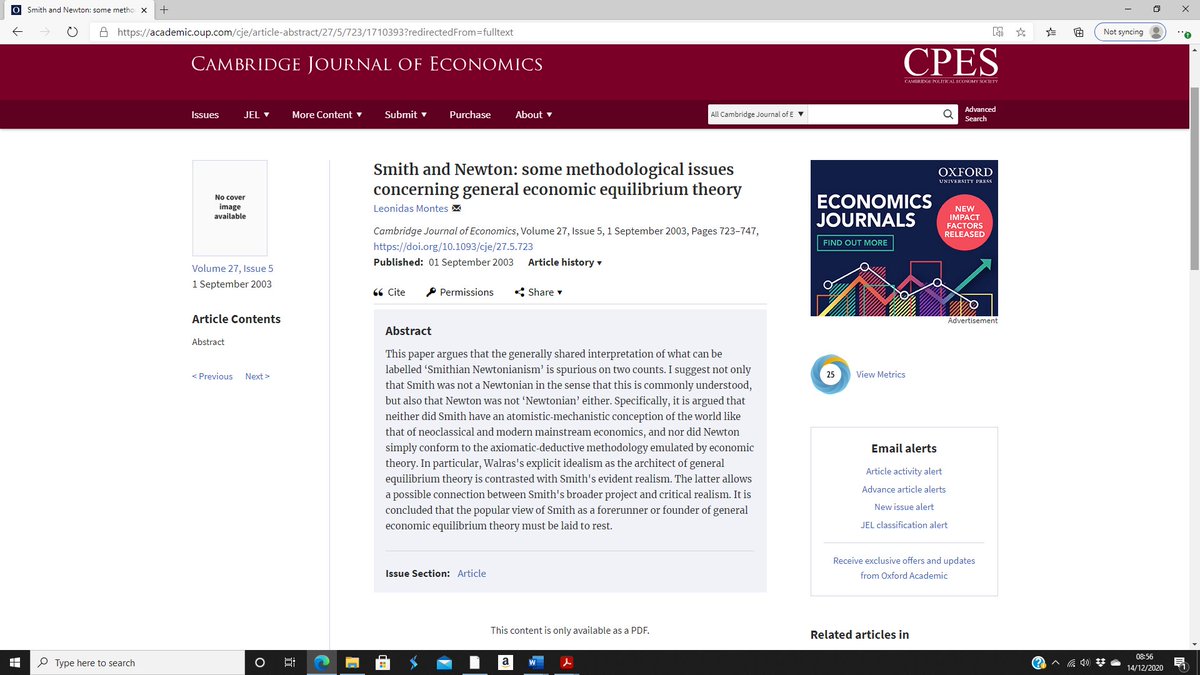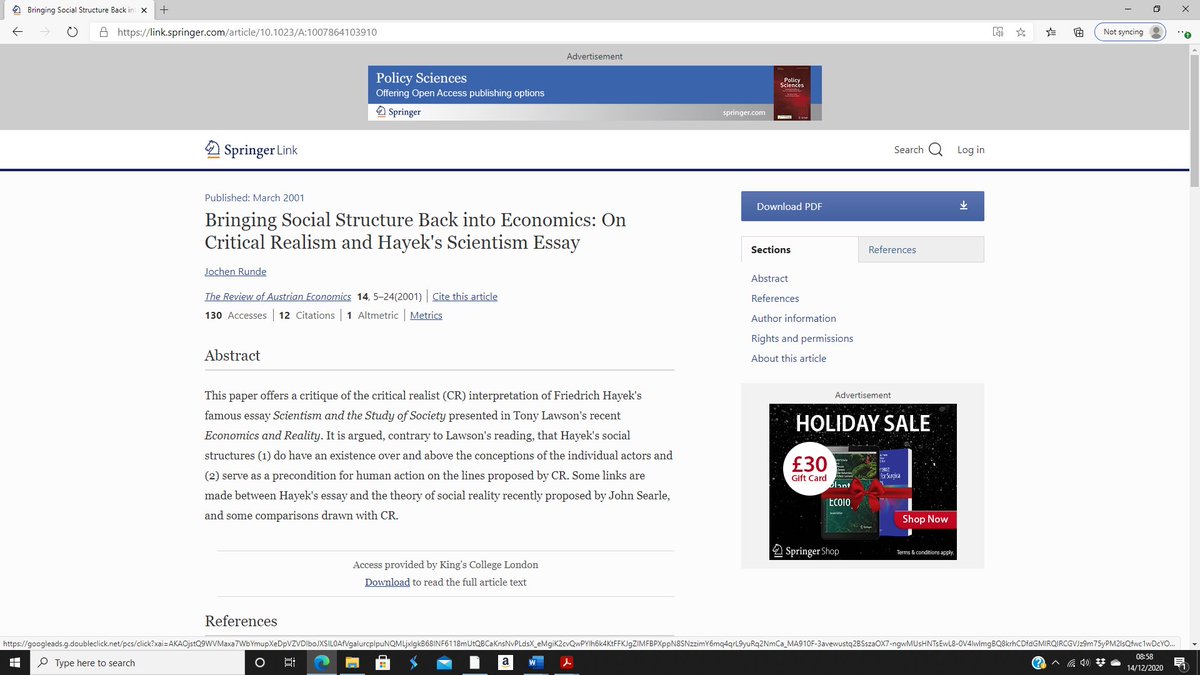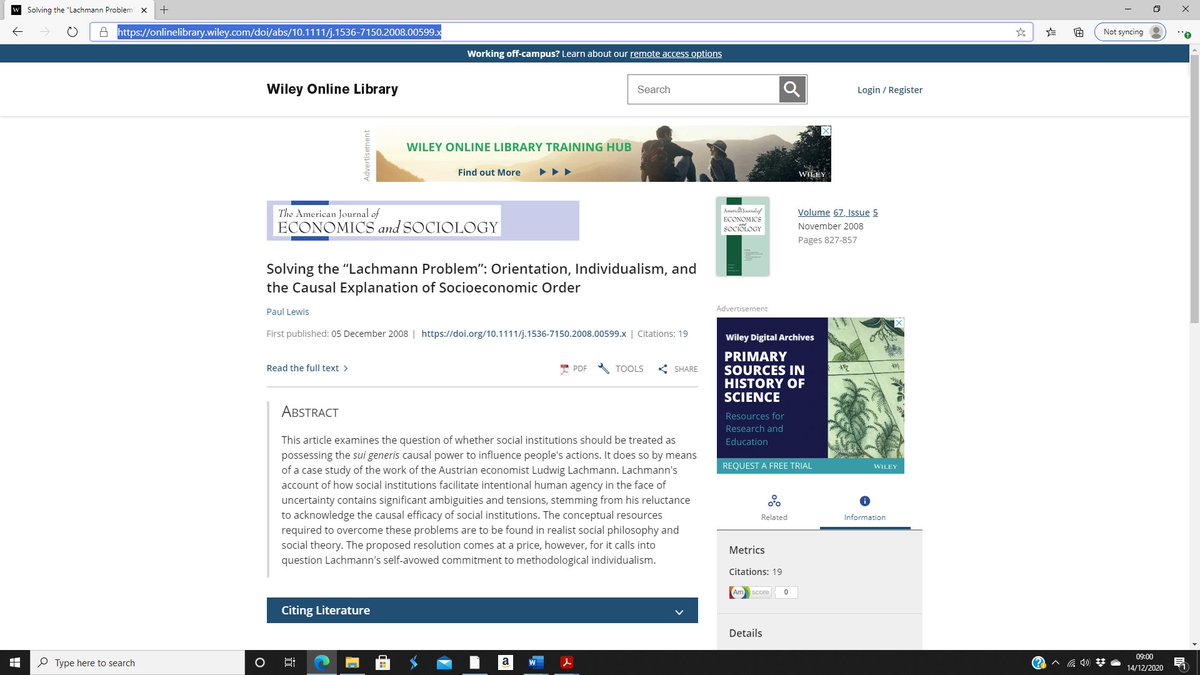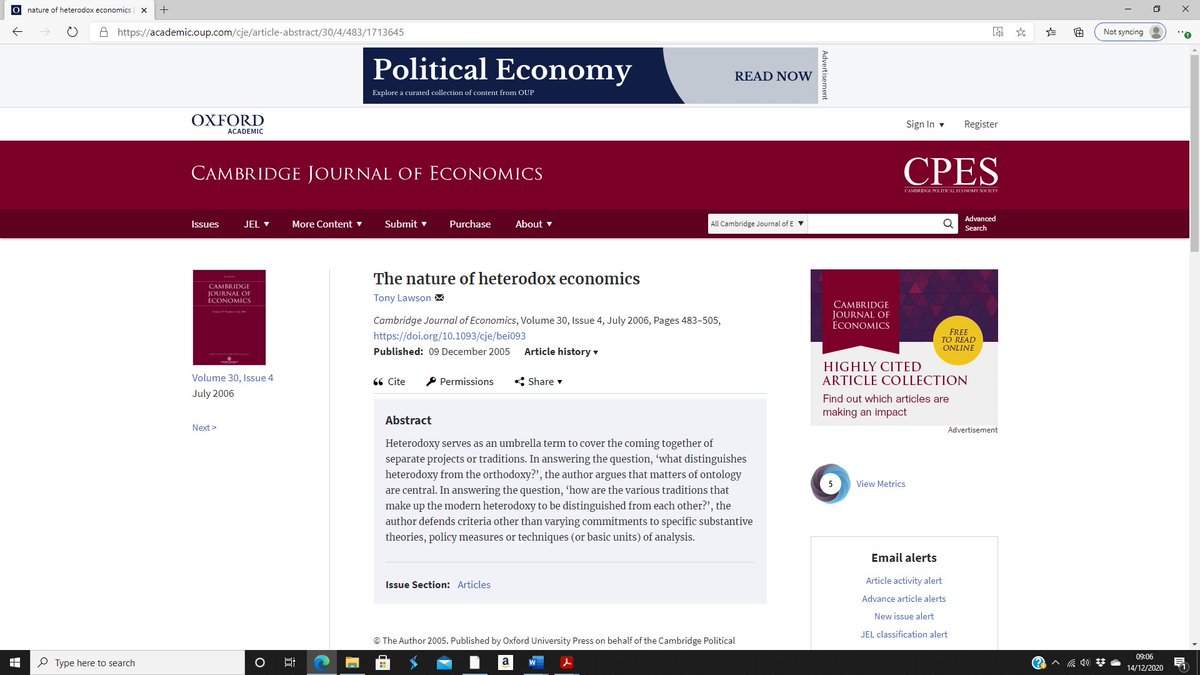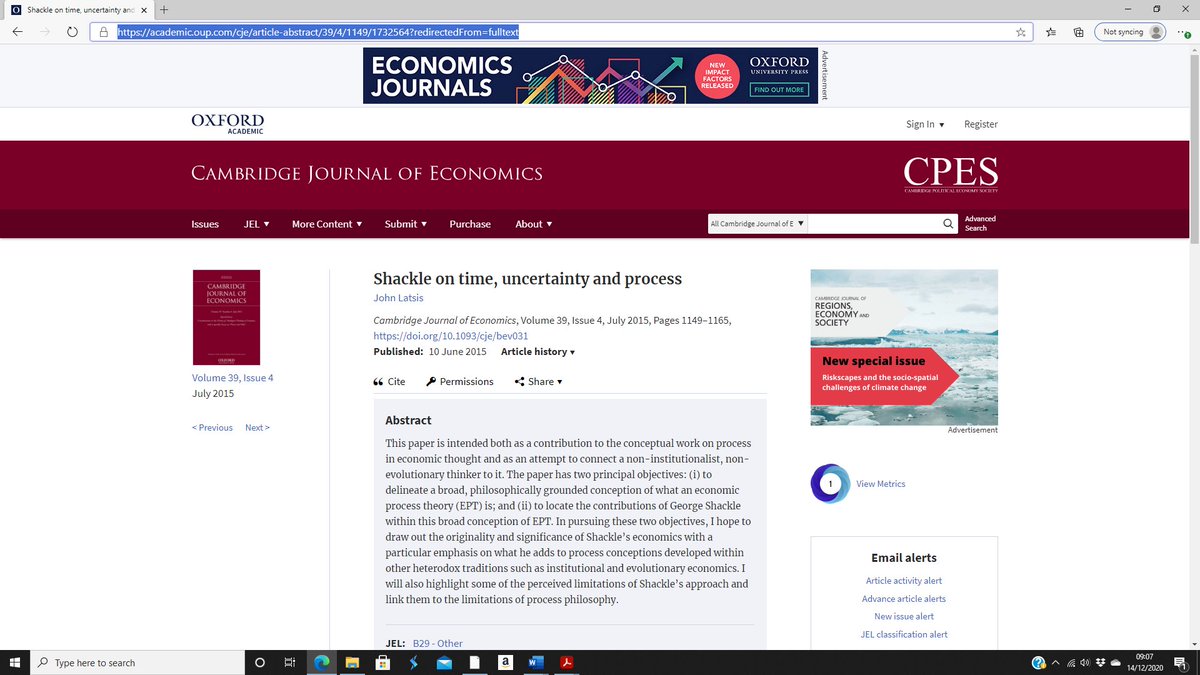Heterodox economists have often criticised the mainstream, and also made the case for their preferred approach to economics, on ontological grounds (i.e., using arguments that focus on the capacity of certain methods and modes of explanation to do justice to certain important...
...features of the socio-economic world). Historians of thought who are studying the work of such economists can therefore arguably benefit from paying explicit attention to ontological issues.
In what follows I provide just a few examples of work that takes this ontological approach to the study of the history of economic thought. @Societies_HET @economicthought @cacrisalves
Stephen Pratten on Alfred Marshall. https://read.dukeupress.edu/hope/article-abstract/30/1/121/11816/Marshall-on-Tendencies-Equilibrium-and-the?redirectedFrom=fulltext
Mario da Graca Moura on Joseph Schumpeter. https://www.tandfonline.com/doi/abs/10.1080/0967256032000066909
Steve Fleetwood on Marx: https://journals.sagepub.com/doi/abs/10.1177/030981680107300104
Leon Montes on Adam Smith: https://academic.oup.com/cje/article-abstract/27/5/723/1710393?redirectedFrom=fulltext
Jochen Runde on Hayek: https://link.springer.com/article/10.1023/A:1007864103910
Paul Lewis on Ludwig Lachmann: https://onlinelibrary.wiley.com/doi/abs/10.1111/j.1536-7150.2008.00599.x
Tony Lawson on the nature of heterodox economics. https://academic.oup.com/cje/article-abstract/30/4/483/1713645
Clive Lawson on Menger. https://www.tandfonline.com/doi/abs/10.1080/00346769600000028

 Read on Twitter
Read on Twitter


